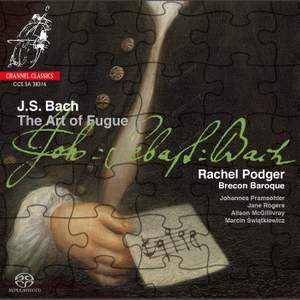Questions about the implied instrumentation are never going to be answered definitively. Certainly, virtually all the cycle is set out in such a way that it can be played on the keyboard, but the open score format of the original invites interpretation from any potential instrumental combination (or, indeed, even just a soundless reading by the highly trained musician). This question immediately leads on to another how are we expected to listen to this music? Are we meant to hear a sequence of virtual events or is it to be one event in a single span of time? Is it perhaps the filling out of contrapuntal and motivic possibilities that are all potentially simultaneous and which only have to be strung out in time to render them humanly perceivable? Much of this suggest that the work implies a sort of cyclic time, experienced from the point of view of eternity - in other words, the sort of time that we might imagine God experiences, superior to the messy narrative of human linear time. Yet, there are always human, worldly elements, such as the allusions to French style in Contrapunctus 6, the rhetorical pauses in the very first Contrapunctus, or the playful flow of the mirror fugues or some of the canons. This residue of human habitation is perhaps what distinguishes Bachs fugal works from the fugal (or ricercar) tradition of previous composers and in which later composers heard a voice speaking directly to them, a voice that shared at least some aspects of the modern world, even if it was entirely suffused with the sense of an overwhelming and all-embracing godly order.






